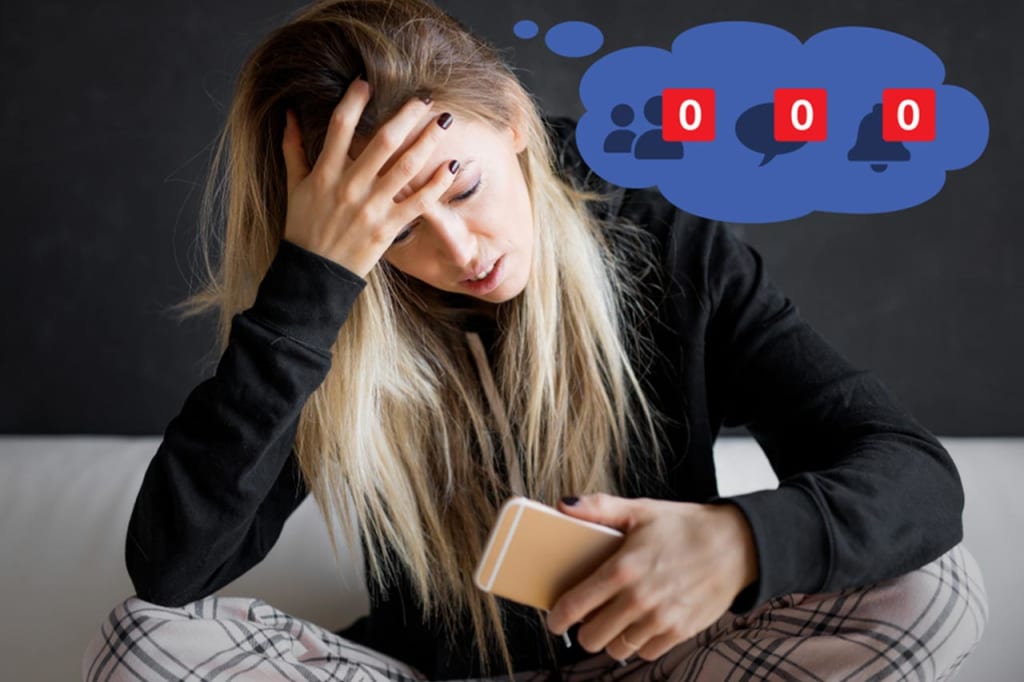Relationship between Anxiety and Social Media Usage.
Increase in anxiety due to social media.

Anxiety and Social Media
Abstract: -
This research aims to investigate the link between social media use and anxiety. Although social media has improved connectivity, it has also presented new difficulties for mental health. Due to variables including fear of missing out (FOMO), social comparison, and the pressure to portray a perfect picture online, many people report experiencing anxiety or stress as a result of using social media.
The study analyses the most recent findings in the field, including research on the relationship between social media use and anxiety as well as potential treatments for social media-related anxiety. The analysis also takes into account the ways in which social media platforms might lessen user anxiety, such as by encouraging constructive interactions and hiding stats like likes and follows.
Lastly, the paper emphasizes the need for additional study on this crucial subject as well as for greater knowledge and instruction on the possible negative effects of social media use on mental health. We can endeavor to create effective tactics for promoting healthy social media use and helping those who might be experiencing anxiety as a result of their online activities by better understanding the connection between social media and anxiety.
Introduction: -
Social media has significantly impacted our daily lives in recent years. We use it to communicate with friends and family, exchange stories, and keep up with current events. Social media does, however, have certain drawbacks in addition to its many advantages. One of these, particularly when it comes to anxiety, is its potential effect on our mental health. According to research, using social media can increase emotions of stress, concern, and unease because of things like social comparison, the pressure to maintain an ideal online persona, and the fear of losing out. We will go deeper into the connection between anxiety and social media use in this study, analyzing the most recent research on the subject and taking into
account various interventions and tactics for encouraging constructive social media use.
Anxiety in Adolescents due to Social Media: -
Social media, often known as internet programs that let users create and share material with others, has taken center stage in the lives of developing people. Young individuals utilize social media to the tune of 90%, with the majority utilizing two or more platforms and frequenting them frequently. Social media is so commonplace in children ’s and adolescents' life that researchers are becoming more and more interested in how it affects their psychological development. Emerging adults may navigate crucial developmental tasks, such as forming their identities and maintaining their social networks, within the setting of social media. By the usage of social media, one can advance identity formation and strengthen social support, which may improve psychological well-being. Yet, when people receive unfavorable comments from others or make unfavorable social comparisons, using social media could act as a stressor or perpetuate negative self-evaluations. The immersive experience produced by social media sites' numerous distracting elements may encourage avoidant coping mechanisms and social isolation, which may encourage psychopathology.
Effects of Social Media on Adults: -
In an another study, a sample of participants—mostly female (88%) American undergraduates—reported that using Facebook made them feel worried, and nearly half said they delayed accepting friend requests because of their worry. Adults' mental health and well-being can be affected by social media in both good and bad ways. On the one hand, it can present chances for community, connection, and resource access for persons dealing with mental health challenges. On the other hand, it can lead to elevated levels of tension and worry as well as feelings of loneliness and social isolation. Adults should consider the advantages and disadvantages of using social media before deciding how and when to utilize these platforms to promote their overall wellbeing.
On a normal day, participants reported utilizing social media for an average of 6.63 hours. Men reported using social media more frequently than women each day.
According to researchers, social media fatigue has serious drawbacks for individuals as well as for businesses and service providers. On a user level, social media weariness causes a decline in both mental and physical abilities, increasing the likelihood that users may adopt undesirable behaviors. Similar to this, social media exhaustion can be bad for businesses and service providers because it causes users to stop using services, which lowers profitability for these entities. Despite these grave implications, research on social media fatigue is still in its infancy. The majority of existing studies have only addressed its relationship with service satisfaction, frequency of use, privacy, discontinuity, excessive use of social media, technostress, and physical and social overload.
Conclusion: -
In conclusion, there are many different ways that social media and anxiety are related. Social media can offer those who struggle with anxiety chances for connection, support, and access to resources, but it can also exacerbate feelings of tension, worry, and unease. People can choose how to interact with these platforms in a way that enhances their general wellbeing by being aware of the advantages and potential risks of social media use for mental health.
The function of social media corporations in encouraging wholesome usage of their platforms is one potential conversation starter that emerges from this subject. Social media firms have a duty to prioritize the well-being of its users in the design and implementation of their platforms and to take measures to lessen the detrimental effects of those platforms on mental health. This can be taking steps to highlight positive interactions and material, hiding metrics like likes and follows, or offering help and resources to individuals dealing with mental health difficulties.
Furthermore, people may contribute to encouraging healthy social media use by being aware of their own social media habits, establishing limits on how much time they spend on these sites, and encouraging one another to utilize social media in a way that benefits their overall wellbeing.
References: -
Online social media fatigue and psychological wellbeing—A study of compulsive use, fear of missing out, fatigue, anxiety and depression. By Amandeep Dhir.
Social Media Use and Depression and Anxiety Symptoms: A Cluster Analysis by Shensa, Ariel 1 ; Sidani, Jaime E 2 ; Dew, Mary Amanda 3 ; Escobar-Viera, César G. 2 ; Primack, Brian A.
Social media use and anxiety in emerging adults by Anna Vannucci
Use of multiple social media platforms and symptoms of depression and anxiety: A nationally-representative study among U.S. young adults by Brian A. Primack
Young Adult Depression and Anxiety Linked to Social Media Use: Assessment and Treatment by Joanna E. Bettmann.
About the Creator
Muhammad Suhaib Khan
Hi there! My name is Muhammad Suhaib Khan, and I'm a content writer with a passion for creating engaging and informative articles. I specialize in writing about stories and article reports





Comments
There are no comments for this story
Be the first to respond and start the conversation.